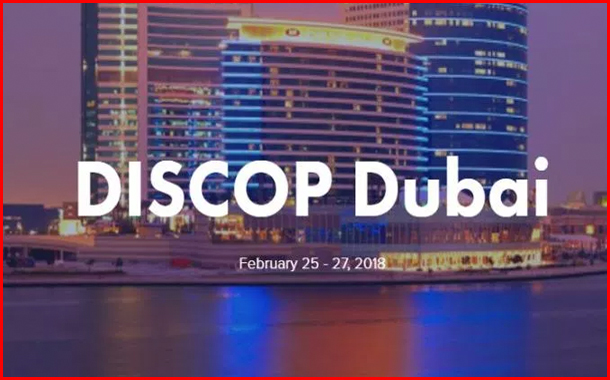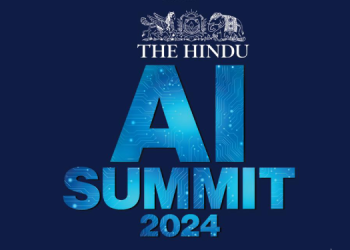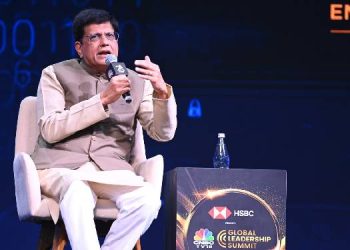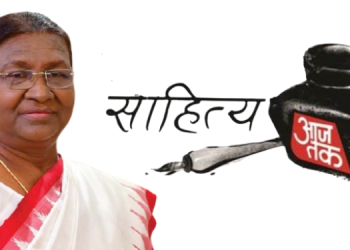The second edition of DISCOP Dubai—which caters to content markets in the Middle East, Northern Africa and the Indian subcontinent—began Sunday morning, with around 275 registered buyers expected at the three-day event.
Patrick Zuchowicki, the CEO of Basic Lead, the company that organizes DISCOP Dubai, announced that at this year’s event there are more than 700 registered delegates from 69 countries, including 109 distributors and 274 buyers representing 165 free-to-air, pay-TV and streaming platforms from the Middle East, Indian subcontinent, Central Asia and Central Europe.
On Sunday evening, the opening cocktail party celebrated India, DISCOP Dubai’s Guest Country, given the growing popularity of Indian programming in the MENA region.
DISCOP Dubai, alongside providing a venue for the buying and selling of content, this year’s event is also featuring an Arab Format Accelerator, which focuses on 25 scripted and unscripted projects available for adaptation for the Middle Eastern marketplace. There is also the NEXT GEN program, providing keynotes and panel discussions aimed at creatives and production and distribution executives in the content business.
During the opening keynote by Dr. Riyadh Najm, the CEO of Saudi Media Measurement Company, delegates had the opportunity to learn about programming trends in Saudi Arabia, a country of some 30 million people, of which two-thirds are Saudi and one-third are ex-patriots. Average television viewing in the kingdom is 4 hours per day. Of all the films that aired on Saudi television in 2017, 40 percent were Turkish, 27 percent Indian, 19 percent Western, 8 percent Arab and 6 percent from the GCC, a political and economic alliance of six countries: Saudi Arabia, Kuwait, United Arab Emirates, Qatar, Bahrain and Oman. The breakdown of all television series aired in 2017 finds that 34 percent were Turkish, 24 percent GCC, 19 percent Indian, 15 percent Arab and 9 percent Western.
During a panel at DISCOP Dubai entitled Spotlight on the Middle East: The Staying Power of Linear Television in a Fast-Evolving Digital World, panelists focused on major issues affecting the television industry: changing viewing habits and business models, and the need for cooperation and regulation in the region.
The panelists were: Martin Stewart, the CEO of OSN (UAE); Manoj Mathew, the chief operating officer of Zee Entertainment (India) and Sanjay Raina, the senior VP and general manager of Fox Networks Group (UAE). The session was moderated by Nick Grande, the managing director of Channel Sculptor, based in Dubai.

As with platforms in other regions, the ones in MENA must find ways of delivering content directly to the consumer. OSN’s Stewart stated, “OTT will be the majority of our business in a very short time.” OSN has already launched its own online TV service, Wavo, and recently closed a deal with Netflix. OSN will be offering its premium subscribers Netflix free for a period of time, initially through app delivery and by June of this year through a new set-top box OSN is launching that will have Netflix embedded in the box.
Stewart added that if it’s true that content remains king, then distribution nowadays is King Kong, pointing out that it is incumbent on platforms to reach consumers wherever they are.

Zee’s Mathew noted that because of the increase in ways of consuming content, “It’s not a good time for linear channels, but a brilliant time for content.” He added that platforms must make the critical decision, “Are we platforms? Are content creators, or are we content aggregators?”
Fox Networks Group’s Raina countered that since March 2016, the company has launched eight channels in the MENA region, and they are all performing well. “Clearly someone is watching and linear is working.”
He also said viewers like being in charge of their remote controls rather than having data driving viewership, as algorithms do on streaming services.
Panelists agreed that as platforms offer streaming services, they will have to deal with declining price points and find ways of making up lost revenues, as monthly subscription fees could drop from an average of about $60 a month for a package of channels to $10 for an OTT subscription.
Another common theme was the importance of exclusive content, whether it be for free-to-air channels or pay services. Zee’s Mathew noted, “We are chasing subscribers or advertisers, so either way we need content.”
There was also agreement on the untapped creative potential in the region and the importance of original content and ownership of IP, as opposed to licensing product, which a platform or linear channel eventually has to give back to the rights holders.
The panelists acknowledged the problem of piracy in the region as well. On this point, they called for greater collaboration among all players in the region and the need for a proper regulatory framework for development of the media industry in MENA.

















